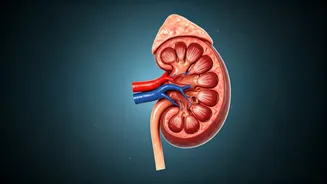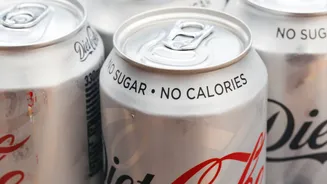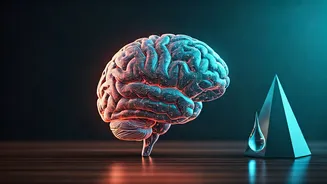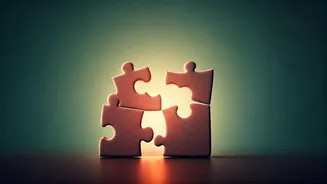Initial Warning Signs
One of the earliest and most noticeable effects of overhydration is the change in urine appearance. Consistently clear urine often means the body is receiving
more water than it needs, leading to the dilution of vital electrolytes. This is an initial indication of potential overhydration, particularly when paired with frequent water consumption and a lack of physical activity or heat exposure that would warrant increased fluid intake. In addition, an excessive water intake forces the kidneys to work harder than normal to filter and remove the excess fluid. This can trigger hormonal stress responses in the body, leaving a person feeling unusually tired, weak, or physically drained. Some people report difficulty getting out of bed or feeling wiped out despite resting, as the body struggles to maintain internal balance.
Headaches & Brain
Throbbing, persistent headaches are a key sign of overhydration. When sodium levels drop dangerously low, water enters brain cells, causing them to swell, a condition known as cerebral oedema. Since the skull cannot expand, even slight swelling increases pressure, triggering intense headaches that may worsen over time and don’t improve with drinking more water. Beyond headaches, excess water can impair normal brain function. When neural cells swell, people may feel mentally slow, confused, forgetful, or unable to focus. Disorientation, sudden mood changes, irritability, or brain fog are all neurological signs that the brain is under pressure due to a water volume imbalance rather than dehydration.
Gastrointestinal Distress
As sodium levels fall due to excess water, the body begins to react adversely. Nausea, occasional vomiting, and dizziness can occur when an electrolyte imbalance interferes with digestive and neurological function. These symptoms are often mistaken for dehydration, but in overhydration, they stem from fluid overload rather than a lack of fluids. Muscle cramps, twitching, or spasms without warning can also be warning signs. When water dilutes these electrolytes, muscles may cramp, twitch, or spasm without warning. These cramps can affect the legs, arms, or abdomen and may feel similar to exercise-induced muscle fatigue, even if no strenuous activity occurred.
Other Physical Symptoms
Fluid overload can make parts of the body appear puffy, especially the hands, feet, lips, and face. This swelling happens because excess water enters cells and tissues faster than the kidneys can remove it. The skin may also look pale, stretched, or slightly discoloured because of fluid accumulation under the surface. In extreme water toxicity, brain swelling can affect areas that regulate breathing. As pressure increases, normal respiratory function can slow or become irregular, leading to shortness of breath or difficulty breathing. Without prompt medical care, this can quickly become life-threatening. Urinating more than 8 to 10 times a day may signal that the kidneys are working overtime to remove excess water. Although bathroom frequency can increase with caffeine or high fluid intake, a consistent need to urinate, especially when urine is clear, can indicate that the body is unable to maintain a healthy water-sodium balance. This constant flushing can also strip the body of electrolytes over time.
Risk Factors and Prevention
According to research, drinking excessive water can dangerously dilute sodium levels in the blood, leading to hyponatraemia, a condition that disrupts fluid balance, nerve activity, and muscle function. The study highlights that water intoxication, although rare, has been reported in endurance athletes, extreme water-drinking incidents, and in individuals using recreational drugs such as MDMA, which increase both thirst and fluid retention. Risk further rises when the kidneys are unable to excrete excess water efficiently, overwhelming the body’s natural electrolyte balance. The IOM recommends 2.7 litres per day for adult women and 3.7 litres for adult men, including fluids from food sources as well as drinks. It also emphasises that hydration should ideally be guided by natural thirst cues rather than forced excessive intake.














